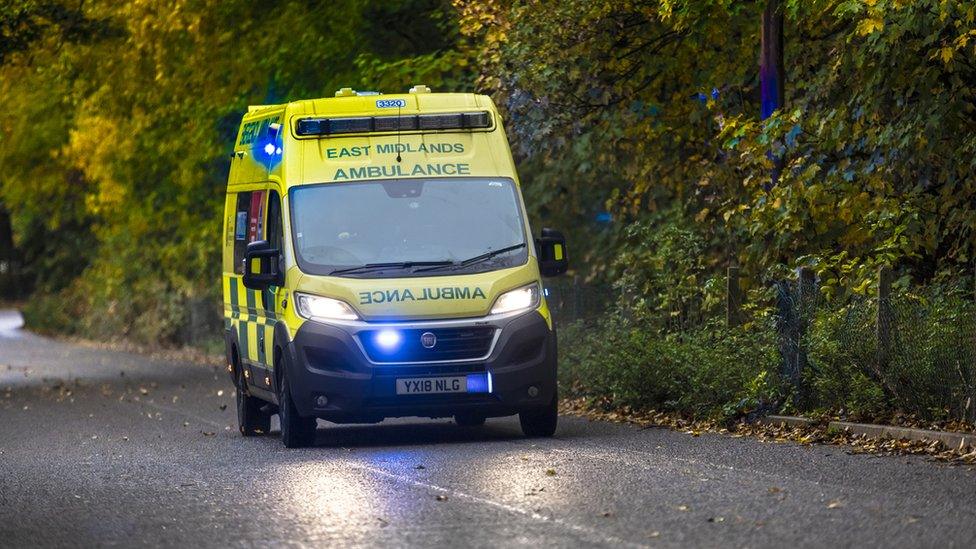HGV driver from Woodbridge died after stroke treatment delays
- Published
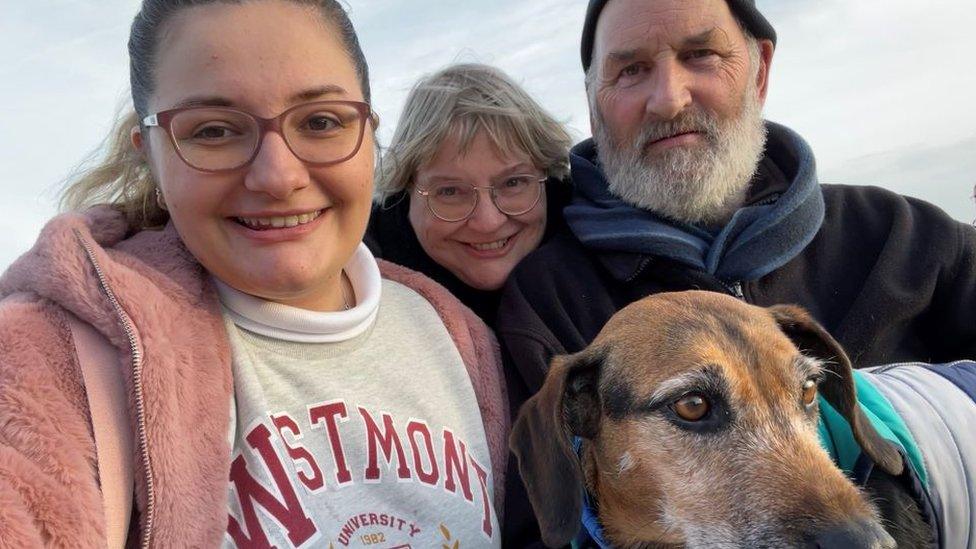
Mr Hunt's family believe the delay in getting him an ambulance mean he was "never given a chance"
A lorry driver who suffered a stroke behind the wheel and waited more than two hours for an ambulance was "never given a chance", his family said.
Martin Hunt, 59, from Woodbridge in Suffolk was at a site in Northampton on 27 October 2022 when he became unwell.
He died in hospital three days later and his family fear others will be put in the same position.
A report into the death by East Midlands Ambulance Service (EMAS) stated changes had been made.
Multiple 999 calls were made by Mr Hunt's colleagues between 23:00BST on 27 October and 00:58 on 28 October detailing his worsening condition, including facial droop, slurred speech and loss of sensation in his left side.
In total Mr Hunt spent two hours and 22 minutes waiting for paramedics after being put down as a category two call, which has a target response time of 18 minutes. He died on 31 October, 2022 at Northampton General Hospital.
A serious incident report (SIR) by EMAS said all the calls were "correctly coded" as a category two response and said delays were caused by hospital handovers and "high demand".
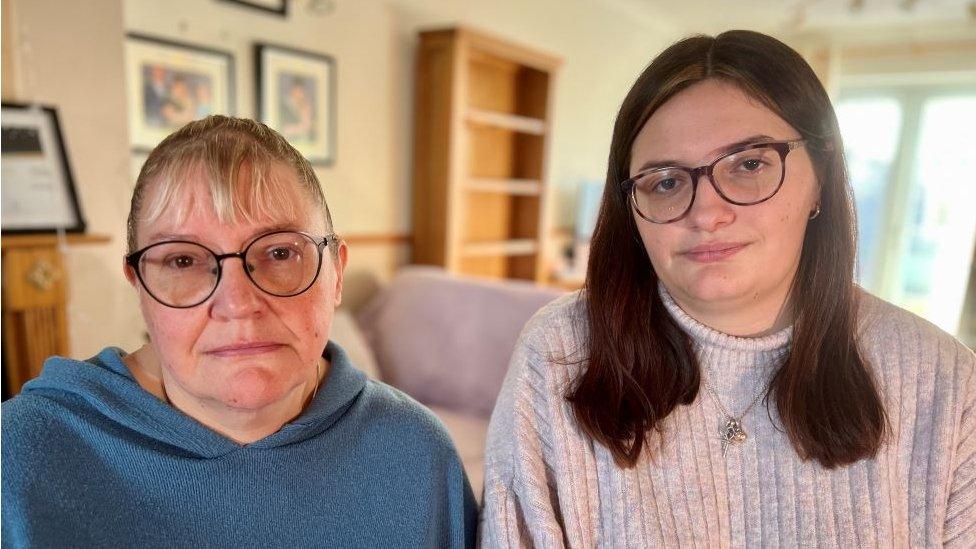
Martin's wife, Julia, and daughter, Bethany Rose Hunt, said it had been "frustrating and distressing"
'Never gave him a chance'
Mr Hunt's wife, Julia, 54, an NHS nurse for 30 years said her husband was a "loving, caring man" and a "supporter of the NHS" but she felt let down by that same system.
"I was angry and I remain hurt and it remains part of the reason the grief is still so intense - in the fact that they never gave him a chance," she said.
"It's incredibly frustrating and distressing. From the report we've read, we know that his colleagues were telling the ambulance service verbatim the symptoms of a stroke and they still didn't seem to understand the urgency and necessity to get an ambulance there."
Mrs Hunt said knowing how important it was for stroke victims to be treated quickly made her more frustrated.
Mrs Hunt said the impact of the ambulance delay was far-reaching, not only potentially costing her husband his life but also her family home, which she cannot afford without his income.
His daughter Bethany Rose Hunt said: "There's something systemically wrong if someone can sit behind the wheel of a lorry for two hours and 22 minutes with suspected stroke symptoms and just be left. That's wrong.
"My dad deserves to have a voice and so does everyone else whose been let down by the NHS in any context," the 25-year-old said.
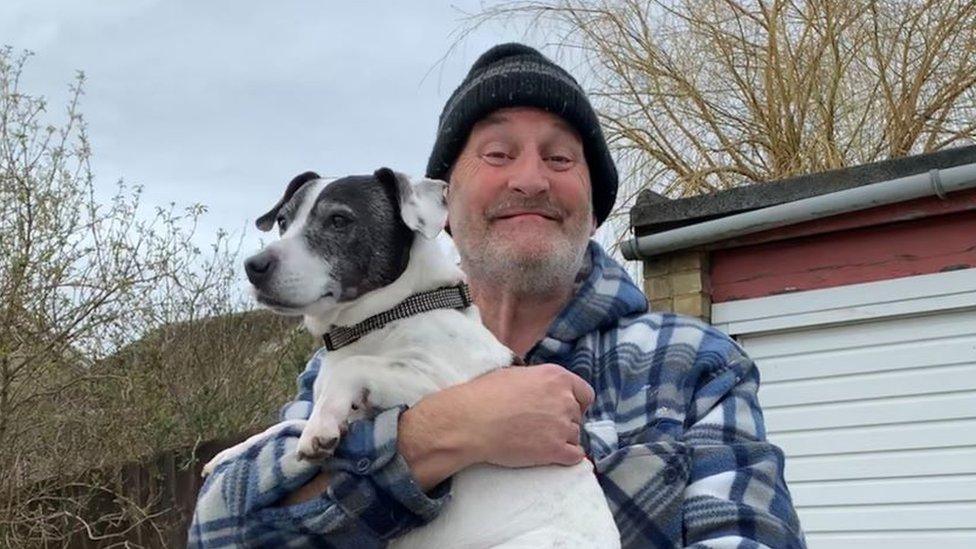
Martin Hunt waited two hours and 22 minutes for an ambulance while stuck in the cab of his lorry
The SIR, seen by the BBC, by the trust states several changes have been made including callers being given a timeframe for a response and processes to allow ambulances waiting at hospitals to leave immediately if a category one call is made.
The timeframe estimates will allow people to make informed decisions and possibly "seek alternative arrangements," the report said.
Mr Hunt's family have raised concerns about the SIR, which they have said they were not asked to contribute to.
'Tremendous pressure'
Michael Jones, divisional director for Northamptonshire at East Midlands Ambulance Service, said the NHS and ambulance service was continuing to operate "under tremendous pressure".
"We've invested in new staff, vehicles and technology but continue to experience handover delays at hospitals," he said.
"We are working closely with partners at NHS trusts, members of the wider health community and the government to identify what more can be done to alleviate pressures and support the system at times of increased demand.
"We need the public to use NHS services wisely too. 999 should only be used for medical emergencies. NHS 111 can be used if urgent medical advice is needed."
No inquest has been held into Mr Hunt's death and the Northamptonshire coroner said Mr Hunt's death had not been reported to them.
A spokesperson for Northampton General Hospital NHS Trust said it has introduced improvements to ambulance handover processes, to allow ambulances to leave for category one or two calls in a "more timely manner".
A Department of Health and Social Care (DHSC) spokesperson said: "Patients deserve access to urgent and emergency care as quickly as possible, and our sympathies are with Mr Hunt and his family."
Ambulance handover delays have fallen 28% compared to the same time last year and work was underway to get 800 new ambulances on the road, the spokesperson said.
Creating and freeing up hospital beds was also being worked on, the DHSC said.
"We know there is more to do and that's why we're working to get 800 new ambulances on the road and create 5,000 extra permanent hospital beds, on top of 10,000 hospital at home beds already rolled out, to free up hospital capacity and cut waiting times."

Follow East of England news on Facebook, external, Instagram, external and X, external. Got a story? Email eastofenglandnews@bbc.co.uk, external or WhatsApp 0800 169 1830
- Published29 November 2023
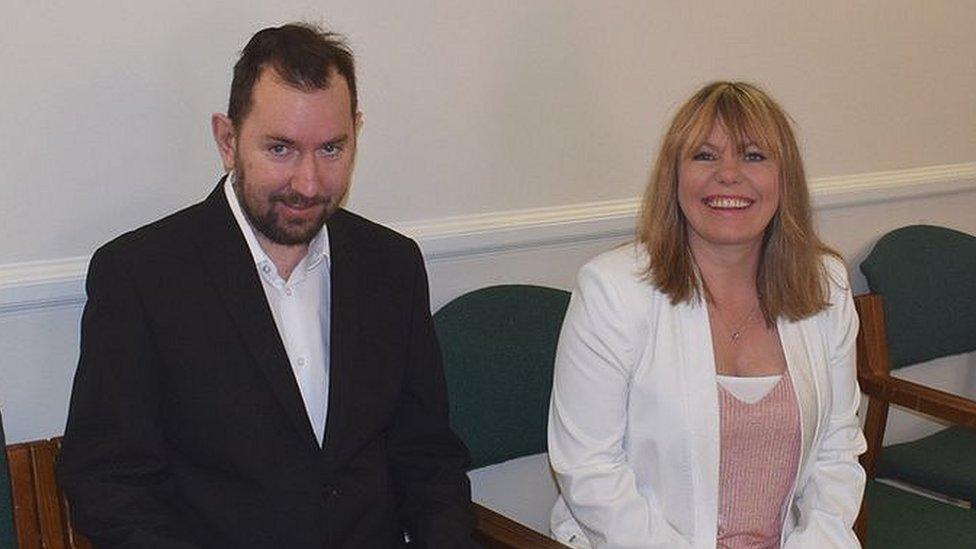
- Published14 November 2023
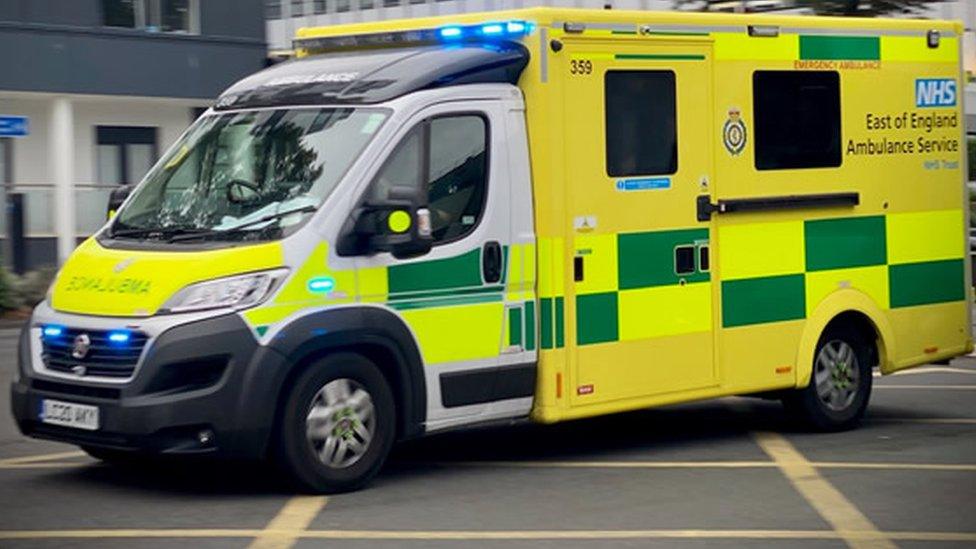
- Published21 November 2022
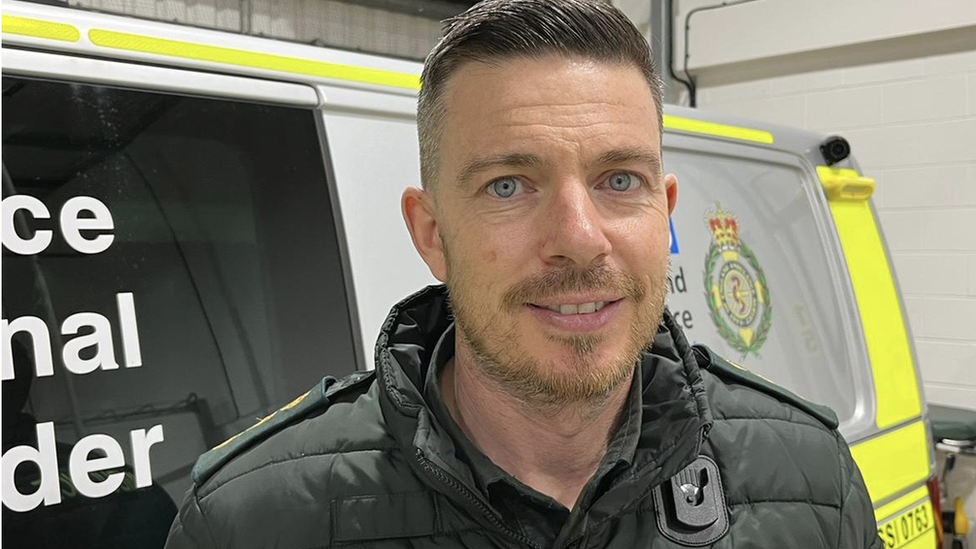
- Published22 December 2022
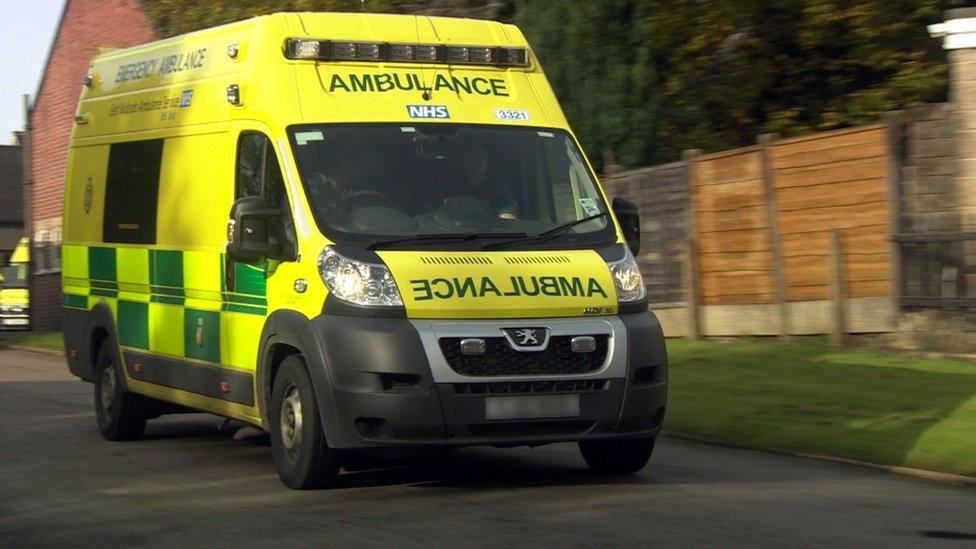
- Published10 January 2023
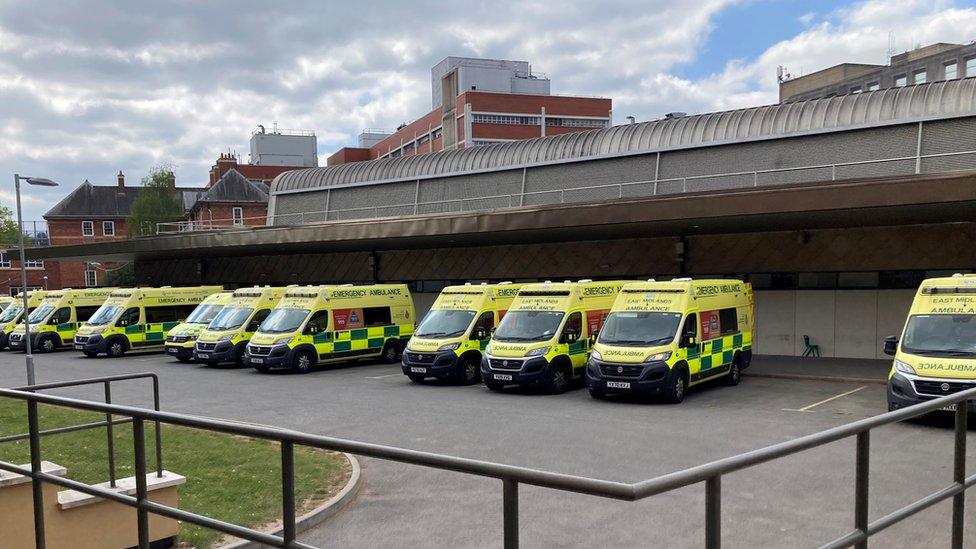
- Published16 February 2023
